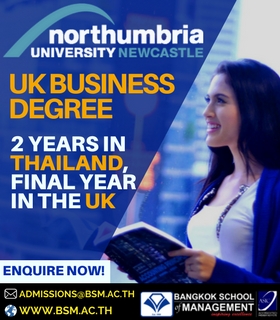| Location | Cambridge, United Kingdom | Funding Type | Public |
|---|---|---|---|
| No of Students | 24490 | Establishment | University |
| Founded In | 1885 | Estimated Cost of Living | 9207 GBP |
| Address | East Road Cambridge Cambridgeshire CB1 1PT |
Our story starts in 1858, when the art critic, patron and philanthropist John Ruskin opened Cambridge School of Art. The art school grew to become Anglia Ruskin University, shortened to ARU, and it’s still at the heart of our modern-day campus in Cambridge.
Over the years, a number of colleges and institutes have become part of ARU. They include the Cambridgeshire College of Arts and Technology (CCAT) and the Essex Institute of Higher Education (formerly the Chelmer Institute – itself formed from the Mid-Essex Technical College and the Brentwood College of Education). At first, these colleges combined to become Anglia Polytechnic, and then Anglia Polytechnic University in 1992.
We’re proud to count graduates of all these institutions among our alumni.
Four main campuses
As well as Cambridge, we have campuses in Chelmsford, London, and Peterborough. Our Chelmsford campus was originally in the city center but moved to a new, purpose-built site in 1992. Today, you’ll find our striking, modern buildings nestled by the river in the city’s University and Innovation Quarter. Meanwhile, our campus at Guild House, Peterborough opened in 2011. It’s dedicated health, social care, and education site where we train many of our region’s nurses and social workers.
We celebrated 25 years of university status in 2017. During the past quarter-century, we’ve made huge contributions to the communities of Chelmsford, Cambridge, Peterborough and the wider region. Here are 25 highlights.
In the last 25 years, more than 140,000 people have achieved a qualification from ARU. Our graduates are making a difference in sectors that are vital to our region’s economic success, such as digital technology, health and medical innovation, and the creative industries.
Online learning is commonplace today but was more of a novelty in 2003 when we launched our first ‘virtual’ degree. Today, we offer a wide range of degrees and professional development courses to distance learners – making it easier than ever to fit study into your life.
We’ve trained more than 10,000 nurses and midwives – as well as many of our region’s paramedics, operating department practitioners and social workers. In 2018, we opened Essex’s first medical school in Chelmsford, to help address the acute shortage of doctors in the region.
Our students graduate with the skills that employers need, thanks to our innovative courses. In the 1990s our BSc Internet Technology was a national first and today, we’re continuing that trend with degrees including Cyber Security, Digital Media, and Computer Games Art.
ARU students come from all over the world, thanks in no small part to our International Office. Set up in 1992, the same year that we became a university, it fosters links overseas and promotes the East of England as a fantastic place to live and learn.
Many of our students are volunteers, getting involved in community projects such as children’s holiday clubs and waste-busting groups. We also have a group of brilliant Student Ambassadors, whose blogs you can read here.
We’ve always believed in being inclusive. As a post-1992 university, we’ve played a major role in making higher education more accessible. At the heart of ARU's ethos is a commitment to offering opportunities to students from a wide range of academic and societal backgrounds.
Over the years, we’ve welcomed thousands of Year 12 and 13 students onto our campuses. Our schools and colleges outreach programme offer a year-round programme of subject tasters, designed to inform and enthuse the next generation of university students.
The East of England has a thriving creative economy, and our students are playing their part in that – with many finding success while they’re still at university. Shout-out to our award-winning illustration and film and television production students.
We’re home to one of the largest business schools in East Anglia, offering courses that are at the cutting edge of current business practice. Our students exchange ideas and knowledge with local employers through internships, mentoring and employment workshops. It’s a relationship that benefits both parties.
In the 1990s, we started to develop training programmes with employers such as Ford Motor Company. These were forerunners of our award-winning Degrees at Work programme, which works with businesses to create bespoke university courses for their staff. In 2017 we launched degree apprenticeships, to help local employers develop their talent.
We pride ourselves on being as enterprising as we are innovative. In recent years, we’ve won two major awards: Entrepreneurial University of the Year in 2014, and The Duke of York Award for University Entrepreneurship in 2016. Our entrepreneurial activities generate significant income, which we invest back into our courses, facilities and local communities.
In the same year that we were named Entrepreneurial University of the Year, nearly 5% of our students went on to launch their own businesses. It’s a testament to initiatives like The Big Pitch, which encourage students from across the University to hone their early-stage business ideas.
Links with industry have always been important to us. In 2012, we launched our MedTech campus. One of the world’s largest health innovation spaces, it gives companies of all sizes access to research expertise, specialist staff, testing and clinical trials.
Hot on the heels of the MedTech campus, we opened the Medical Business Innovation Centre in Chelmsford in 2013. Now known as Arise Chelmsford, it offers lab and innovation space, academic expertise and business support to start-ups and early-stage businesses.
We place great value on research that really makes an impact, and changes lives. We’re focusing on areas including mental health, ageing, climate change and neuroscience. In the most recent Research Excellence Framework, 12 of our research areas were classed as generating world-leading research.
Much of our research work captures the public imagination, from lecturer Trevor Jones’s discovery of a new species of giant elephant shrew in 2008 to recent appeals for people to record sightings of harlequin ladybirds and native solitary bees.
We’re always working to refine and share, our expertise. Our Chelmsford campus, for example, is a hub for highly specialised medical education, training and innovation.
We're home to a thriving postgraduate community, who are developing or honing their skills on our Master's degrees or carrying the research that makes a difference to the world around us. We've made a commitment in our new strategy to growing our postgraduate community.
Students, businesses, and partners benefit from our outstanding facilities: we’ve invested £100 million in the past five years and we’re not stopping there. Spring 2018 saw the opening of our new Science Centre in Cambridge, and this is being followed by further investment. Many of our facilities are open to the wider community.
We’ve got a green heart. Our Global Sustainability Institute is developing practical solutions to the sustainability issues we all face. And as a university, we’re committed to reducing waste, encouraging biodiversity, supporting Fairtrade and more. That commitment is reflected in our latest Green League ranking.
Sport is an important part of life at ARU. We’re proud to have talented sportspeople studying here and we know that, with the benefit of our Sports Scholarship, they can go on to achieve great things. Olympian and Commonwealth Games champion Danny Williams, for example, is one of our alumni.
Every year, our students graduate alongside distinguished honoraries, such as Grayson Perry, Ali Smith and Stephen Fry. We’re in touch with thousands of alumni across the globe, who continue to be ambassadors for ARU, our cities, and our region.
In 2018, we featured in an inaugural list of the top 250 universities in Europe. We've also been named as one of the top 350 institutions in the world in the Times Higher Education’s World University Rankings. But for the proof of any university’s success, we think you can simply look at its students’ achievements.
We measure our success by the impact we have on our students – and on the communities we serve. Although temporarily closed due to the Government's coronavirus directive, our campuses and facilities are normally open to all, and play host to a year-round calendar of events. Come and see for yourself.

